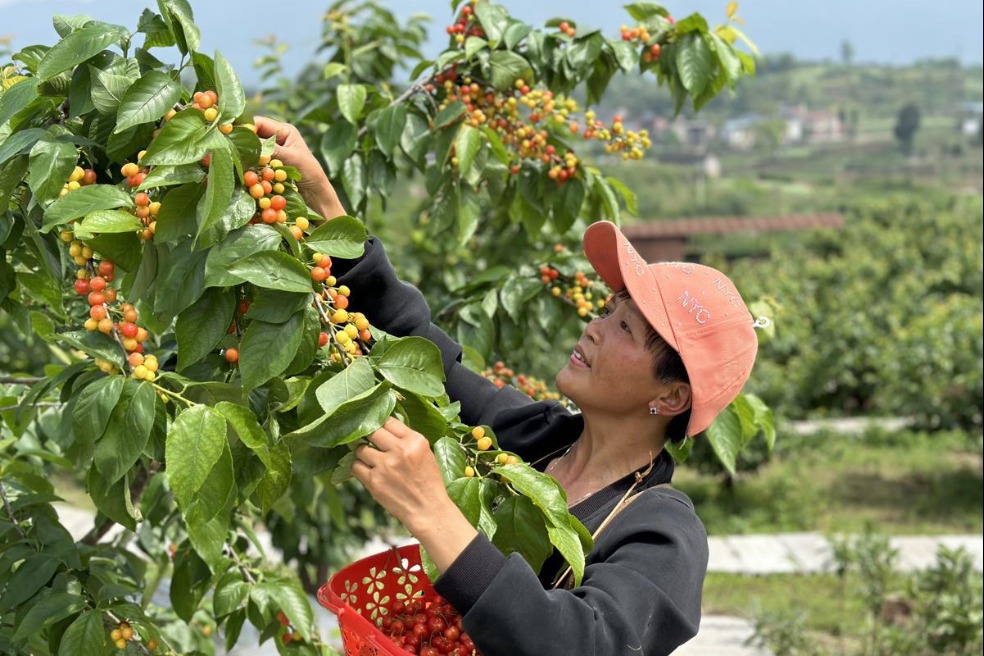Experts discuss Xinjiang employment, labor rights at seminar


GUANGZHOU -- A seminar on employment and labor rights in China's Xinjiang Uygur autonomous region was held online on Wednesday on the sidelines of the 46th session of the United Nations Human Rights Council.
The seminar was sponsored by the China Society for Human Rights Studies, and the Permanent Mission of the People's Republic of China to the United Nations Office at Geneva and Other International Organizations in Switzerland.
Organized by the Institute for Communication and Borderland Governance and the School of Journalism and Communication of the Guangzhou-based Jinan University, the event drew experts and scholars from relevant human rights research institutions in China.
The participants focused on discussions and exchanges on Xinjiang's efforts to protect the employment and labor rights of people of all ethnic groups, and shared Xinjiang's practical experience in helping people of all ethnic groups secure prosperity through employment while continuously improving the concept of human rights development.
The experts agreed that Xinjiang's policies and practices concerning employment and job security comply with China's Constitution and relevant laws, and conform to international labor and human rights standards. They have laid a solid foundation for protecting the rights to life and development of all ethnic groups while promoting social fairness and justice.
Zulhayat Ismail, vice-president of Xinjiang University, said Xinjiang has brought the whole process of the establishment, operation, supervision and mediation of labor relations under the rule of law, providing a solid legal guarantee for people of all ethnic groups in Xinjiang to enjoy equal rights to labor and employment.
Cao Yan, a researcher at the Human Rights Research Institute in Northwest University of Political Science and Law, said Xinjiang has implemented various national labor policies and regulations, issued a number of local laws and regulations, and legalized various proactive policies and measures on the labor market through local legislation, thus forming a relatively complete system for guaranteeing labor rights.
Shang Haiming, an associate professor at the Human Rights Research Institute in Southwest University of Political Science and Law, said some Western scholars' studies on "forced labor" in Xinjiang contain flaws such as a lack of field research, strong ideology, and stigmatizing the protection of labor rights in Xinjiang. The existence of so-called "forced labor" in Xinjiang is a lie influenced by ideological bias.
Nilufer Gheyret, a Ph.D. candidate at the Institute of Communication Studies, Communication University of China, shared her research results on Xinjiang ethnic minorities working in Guangdong. According to her field investigation of 70 ethnic minority workers in five enterprises in Guangdong last year, these workers from Xinjiang chose to work out of personal choice, and all their labor rights have been fully guaranteed. Working outside of Xinjiang also helped them increase their family incomes, broaden their horizons, improve their language skills and vocational and technical levels, and enabled their children to enjoy better educational resources.
Zheng Liang, director of the Institute for Communication and Borderland Governance at Jinan University, said the research results presented and exchanged by experts attending the seminar will help clarify the facts, help the international academic circles to better understand the falsehood of the lie of "forced labor", and better show the true situation, which is that the labor and employment situation in Xinjiang has been greatly improved and people of all ethnic groups have created a better life together.
- Student detained on suspicion of the death of his roommate
- Smart teaching system launched for international Chinese learning
- Shanghai prepares to open parks 24 hours a day
- Action taken over Chongqing Gas Group overcharging
- Xi: Crucial role for new PLA force
- Obesity, myopia growing issues among youth



































